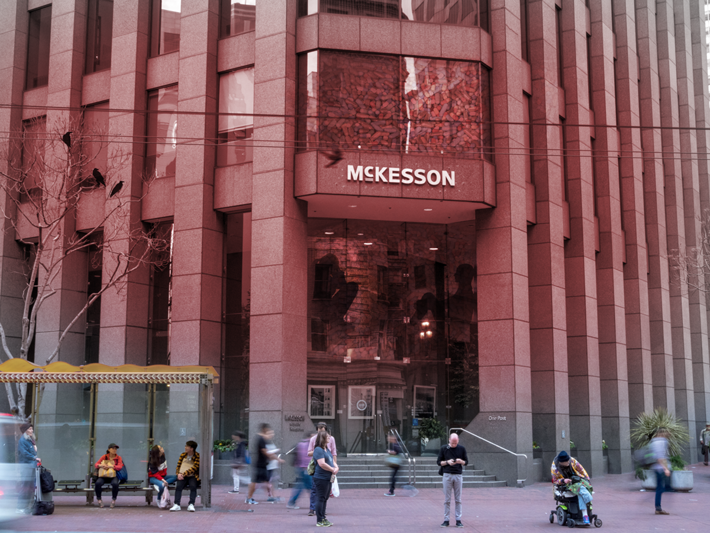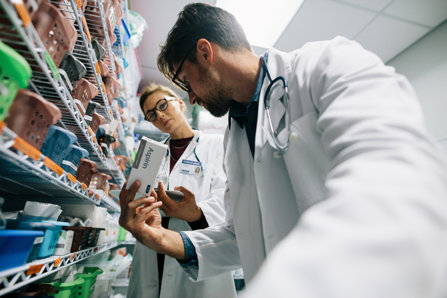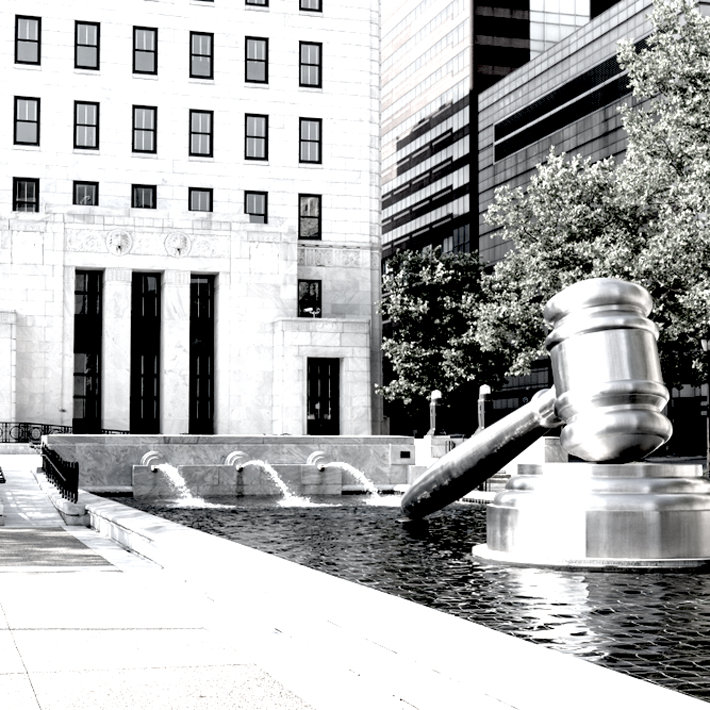Pharma Loses Major Lawsuit
Are Americans Finally Waking Up to the Truth about Addictive Pharmaceutical Drugs?

Many of us silently cheer when we hear about a mega-corporation losing a lawsuit against an underdog. This particular aspect of human nature is evidenced in Hollywood films, music, books, pop culture, and bedtime stories. When someone or some group with evil or malicious intentions is finally exposed and brought to justice, the rest of us cheer, while we continue to purchase the same products from the same company. Let’s hope this time we learn our lesson.
I’ve seen that feeling on the faces of several of my colleagues in the addiction treatment field this year, mainly since so many major pharmaceutical manufacturers and distributors started getting into a lot of trouble—legal trouble in fact—for the hand they played in creating our current opioid epidemic. While they certainly support the efforts to bring some sense of justice to the ever-growing epidemic, most of them are fairly pessimistic with the scale of the settlements.
Case in point: the most recent news in this arena came from a May 2nd, 2019 New York Times article written by Roni Caryn Rabin that discussed McKesson Corporation’s $37 million loss to the state of West Virginia. That’s an event worth talking about, not because of the size of the award, but because it represents a drop in the bucket of overall profits from the sale of addictive drugs.
The Story on McKesson’s Loss
“The state’s suit accused McKesson Corporation of putting profits ahead of residents’ welfare by failing to investigate, report, or stop suspicious drug orders as required by law, and fueling a widespread drug epidemic.”
McKesson Corporation is the nation’s largest drug distributor and earlier this year it lost a lawsuit to the state of West Virginia. McKesson was on the hot seat for having distributed almost 100 million doses of opioid pharmaceuticals to the residents of West Virginia over six years. According to Rabin’s article, “The state’s suit accused McKesson Corporation of putting profits ahead of residents’ welfare by failing to investigate, report, or stop suspicious drug orders as required by law, and fueling a widespread drug epidemic.”
The details of the lawsuit are pretty shocking. McKesson is the sixth-largest American company by revenue, a corporation which reported over $200 billion in revenue in 2018. According to the court proceedings, the mega-corporation, driven by profits, sent enough opioids to West Virginia over six years to give every legitimate patient 3,000 doses apiece. For example, one county in West Virginia, Boone County, received 1.2 million doses of hydrocodone and oxycodone between 2007 and 2012. The county has a population under 25,000.
Even though the pharma company lost the lawsuit, they are not acting like it. April Marks, a spokeswoman for McKesson, talked about how the multi-billion dollar company, “Is committed to working with others to end this national crisis, however, and is pleased that the settlement provides funding toward initiatives intended to address the opioid epidemic.”
McKesson is making it look as though they are contributing to a solution to the drug problem (that they say they didn’t cause) in West Virginia. They are making it look as though they are philanthropists donating to a worthy cause, not criminals paying reparations.
And while the $37 million that West Virginia won will be used to create rehabilitation opportunities for addicts, provide job training, and create better health programs, $37 million is not nearly enough to make up for the cataclysmic damage done to the state.
What Would Be an Even Better Story?
It’s good news to hear that pharma companies are losing lawsuits. While I hate to bring a pessimistic viewpoint to the party, I feel like it’s vital to make it clear that even with everything we are doing to hold Big Pharma accountable, it’s still not enough.
It’s not nearly enough because suing pharmaceutical companies is not going to fix the addiction epidemic that rages through our country. When a pharmaceutical company is sued and forced to pay reparations, no further action is taken. The company executives are not given criminal sentences as a drug dealer would be, even though such companies absolutely are drug dealers.
Instead, the companies merely pay a few million dollars in fines (pocket change to these multi-billion dollar companies) and then they are allowed to go right back to making addictive opioids and other potentially dangerous pharmaceuticals. There is never any real justice. No change occurs. The opioid epidemic continues to grow because pharma companies continue to make the drugs which cause opioid addiction.

A real solution would be one where, in addition to paying reparations to opioid stricken states, counties, cities, and families, pharma companies also had to change how they can do business.
We need significant reform with regards to how we address pain and other physical and mental problems. If we keep relying on pharma companies to give us supposed “solutions in a bottle,” then we’ll be in dire straits forever. Our condition won’t ever change for the better, because the problem of addiction and what is fueling the addiction epidemic will never be addressed.
How Can Families Do Their Part to Protect against Opioid Addiction?
Since we can’t rely on the courts to truly hold pharma giants accountable, this is an issue we are going to have to address and resolve within our own homes. After all, we the American people are the consumers of the drugs which created the opioid crisis. We can also choose not to consume them.
The first step towards protecting a family from opioid addiction is to not jump on the opioid painkiller bandwagon. Don’t take OxyContin for your bad back. Don’t give your child Vicodin for his wisdom tooth surgery. Don’t let your spouse take Percocet for joint pain. Instead, explore alternative, holistic methods of pain relief. Consult with your doctor about other remedies, hands-on approaches, home-remedies, supplements, and different, non-opioid-based methodology for treating physical pain.
There are plenty of methods for treating pain that do not involve opioid drugs. Over-the-counter painkillers that are non-opioid-based are one. For a completely non-pharmaceutical route, there are also holistic remedies like turmeric, capsaicin, boswellia, cat’s claw, valerian root, etc. Keep in mind that the current trend in the medical and dental industry is leaning towards overprescribing rather than underprescribing. While we cannot give medical advice, you may want to talk to your doctor about simply staying away from opioid drugs completely, as they tend to be overprescribed and overused.
On top of that, make sure everyone in your household is educated on the dangers of drugs—the legal ones and the illegal ones alike. Make sure your kids know why drugs are harmful and what exactly drugs do to users. Make sure your kids have good, ethical peers and that they are involved in healthy hobbies and activities with those peers. Make sure you and your spouse are not consuming mind-altering substances and that you’ve done your homework on drugs too.
Reducing the addiction epidemic in the United States comes down to reducing our reliance on addictive pharmaceutical drugs and getting our households and families informed on how to lead safe, sober, drug-free lives. It also comes down to helping those who are currently addicted to drugs to break free from the chains of addiction via rehab.
If You Know Someone Who Struggles with Opioid Addiction…
As a closing note, if you know someone who is struggling with opioid addiction, their fate is not going to change because of what does or does not happen to pharma companies. If you know someone who has already fallen prey to opioid addiction, your mission must be to get that person help through a residential drug treatment program. That is the only safe way for them to get out of their crisis.
Sources:
- https://www.nytimes.com/2019/05/02/health/mckesson-opioids-west-virginia.html
- https://www.narconon.org/blog/dental-painkillers-young-patients-and-addiction.html
Reviewed and Edited by Claire Pinelli, ICAADC, CCS, LADC, MCAP, RAS


 ®
®